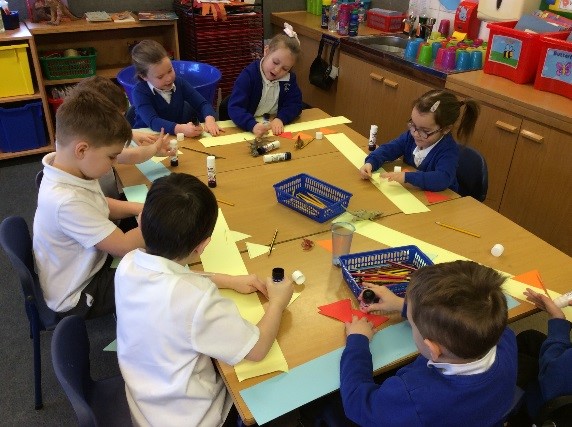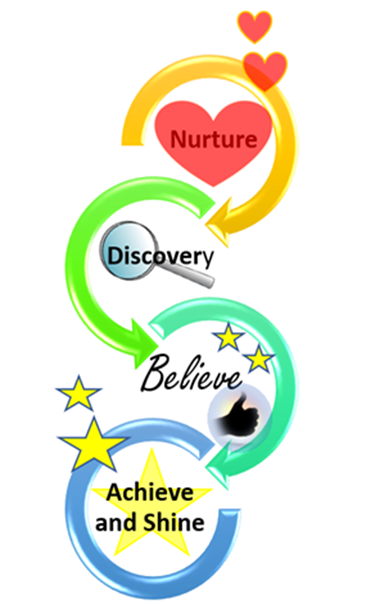Maths

 At Studfall Infant Academy we aim to build essential mathematical knowledge, develop and embed key skills and challenge and extend the children’s thinking. Children are given the opportunity to complete practical investigative and written work. We make learning experiences enjoyable, motivating and exciting and encourage all children to participate.
At Studfall Infant Academy we aim to build essential mathematical knowledge, develop and embed key skills and challenge and extend the children’s thinking. Children are given the opportunity to complete practical investigative and written work. We make learning experiences enjoyable, motivating and exciting and encourage all children to participate.
Curriculum Intent
Over a period of years we have looked at the CPA approach to maths – concrete, pictorial and abstract approach to teaching mathematics. This is reflected in our calculations guidance which can be found at the bottom of this page.
Our teachers will ensure that mathematical skills are taught every day. They also use cross curricular opportunities to develop pupils’ mathematical fluency. A range of resources are used to help with planning – including the White Rose Hub.
Our pupils understand the importance of mathematics, are encouraged to be confident in numeracy and to apply the skills that they learn to simple problem solving. The activities cover a wide range of mathematical knowledge, many with an emphasis on practical work.
Curriculum Implementation
In the Foundation Stage, our young mathematicians will be provided with many exciting opportunities, through planned purposeful play and a mix of adult-led and child-initiated activities, to develop and improve their skills in counting, understanding and using numbers, calculating simple addition and subtraction problems; and to describe shapes, spaces, and measure.
Throughout Key Stage 1, we follow the White Rose Maths Schemes of Learning. Our Mathematics curriculum will provide many opportunities for children to develop confidence and fluency with whole numbers, counting and place value. The use of practical equipment, such as concrete objects and measuring tools, will support the children to gain a deeper conceptual understanding before being challenged through tasks and questions to explain their reasoning and solve a range of problems. The children are equipped with the skills to recognise shapes and their properties and measures to describe and compare different quantities such as length, mass, capacity/volume, time and money.
Curriculum Impact
A variety of methods are used to find out what the children know and understand. Lesson activities are scaffolded to suit the different abilities and learning styles. Mathematics lessons allow for collaborative learning and thus encourage children to talk in pairs, small groups or through class discussion, to share learning. For those children who grasp concepts rapidly, they will be challenged through a range of problems, whilst those not sufficiently fluent will be provided with opportunities to consolidate their understanding through additional practise and first response intervention.
Children in the Foundation Stage will be assessed against the Early Years Learning Goals. Children in Year 2 will be assessed against the End of Year 2 Teacher Assessment Framework.
Teaching for Mastery:
The majority of pupils will move through the programmes of study at broadly the same pace. Pupils who grasp concepts rapidly should be challenged through being offered rich and sophisticated problems before any acceleration through new content. Those who are not sufficiently fluent with earlier material should consolidate their understanding, including through additional practise, before moving on.
Core principles:
- Mathematical success is possible for all
- Topics to be taught in greater depth
- Mistakes are an opportunity to develop
- Alternative approaches and explanations are used if children find concepts tricky
- Same day intervention is used for children to ‘keep up’, not ‘catch up’
- Concrete, pictorial and abstract concepts are used to deepen learning
- Children work in fluid groups (no defined abilities)
- Children who are confident, will be challenged to go deeper with their learning
Meet our Mathematical Superheroes
To help our children develop their reasoning and problem solving skills, we have introduced three superheroes who all have special powers. You will see their posters around school, work linked to each character in the books and hear the children using vocabulary associated with each superhero when discussing their work.
![]() Captain Conjecture
Captain Conjecture  Generate Jess
Generate Jess  Convince Me Vince
Convince Me Vince
Supporting families with Maths

All KS1 pupils will have received an individual login for MathShed. On this website there are a range of games to support your child with key concepts within number.
Each week homework will be sent out to KS1 children via dojo or learning sheets detailing the learning that has been taking place in Maths. Examples will be given of the type of problems your child has been solving and the methods they have used. Please use these to help support your child with their learning.
If you need any support or advice with the Maths learning that is taking place, please do not hesitate to speak to your class teacher who will be able to support you.
The "Family Maths toolkit" is to support families learning Maths together. It is full of ideas and activities to enjoy working through together to improve your Maths. Following the link below will take you to the toolkit.
https://www.familymathstoolkit.org.uk/
We hope you have lots of fun having a go at some of these activities.
Top tips
Be positive about Maths! - even if you have had bad experiences yourself.
Point out Maths in everyday life (numbers, counting, measuring) - shopping, cooking, travelling.
Praise your child for their efforts in Maths.
Calculation Guidance
To support learning at home we will be posting videos on methods used in our calculation policy on Dojo. These will be updated regularly.
